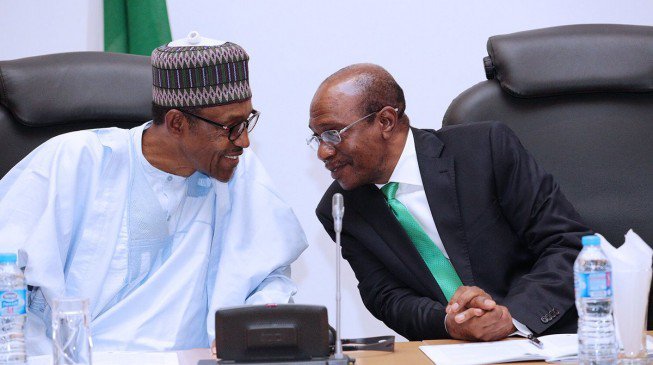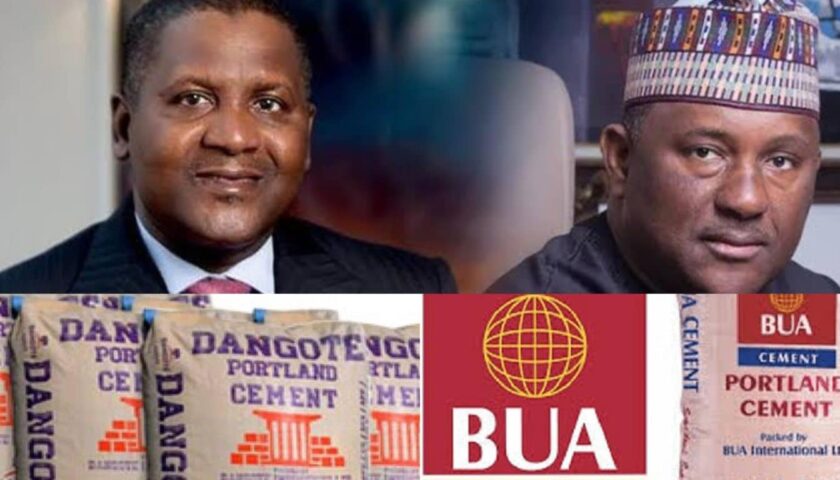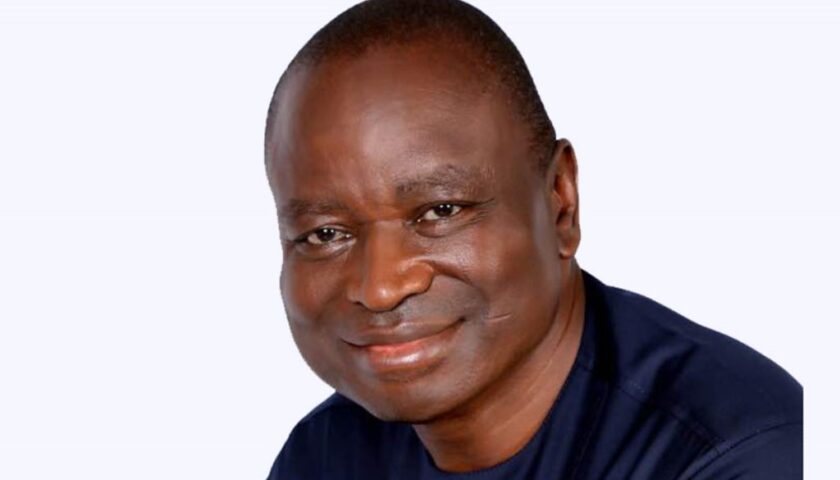President Muhammadu Buhari (left) with Central Bank Governor, Godwin Emefiele
By NewsBits
The costs of servicing Nigeria’s debt could go up by N1.8 trillion in 2023 if the National Assembly held on to its gun and rejects President Mohammadu Buhari’s to convert the N21.8trillion Ways and Means advances from the Central Bank of Nigeria (CBN) to bonds.
The president said the loan-to-bond swap is necessary to reduce the amount spent on debt servicing and interest payments by the government on the overdraft from the CBNN. He urged the National Assembly to reconsider its position on his proposal to securitize the Federal Government’s outstanding Ways and Means of balance at the Central Bank of Nigeria (CBN).
‘’As I stated, the balance has accumulated over several years and represents funding provided by the CBN as lender of last resort to the government to enable it to meet obligations to lenders, as well as cover budgetary shortfalls in projected revenues and/or borrowings,” he said.
‘’I have no intention to fetter the right of the National Assembly to interrogate the composition of this balance, which can still be done even after granting the requested approval. Failure to grant the securitization approval will however cost the government about N1.8 trillion in additional interest in 2023 given the differential between the applicable interest rates which is currently MPR plus 3 percent and the negotiated interest rate of 9 percent and a 40-year repayment period on the securitised debt of the Ways and Means.”
Recall that last week, the Senate rejected President Buhari’s proposal to restructure and securitize the Central Bank of Nigeria’s (CBN) N22.7trillion Ways and Means advances to the federal government. Buhari requested that the N22.7trillion overdraft collected from the CBN over the last ten years be restructured, while also making a request for a fresh N1 trillion, advanced as a new domestic loan.
The president sought the approval of the senate to allow the “securitisation of the Ways and Means balances along the following terms: amount. N23 .7 trillion; tenure, 40 years; moratorium on principal repayment, three years; and pricing interest rate, nine percent.”
Having completed the maximum two terms allowed by the constitution, Buhari is not standing for re-election. Rising debt, weak economic growth, high inflation, and mounting insecurity are major issues for many Nigerian voters. The International Monetary Fund has urged Nigeria to phase out central bank financing of the government to help reduce double-digit inflation.
Economists say Nigeria’s government is spending more money on debt repayments than on education and health, but Buhari has said his government had no choice but to borrow its way out of two recessions in the past seven years.





